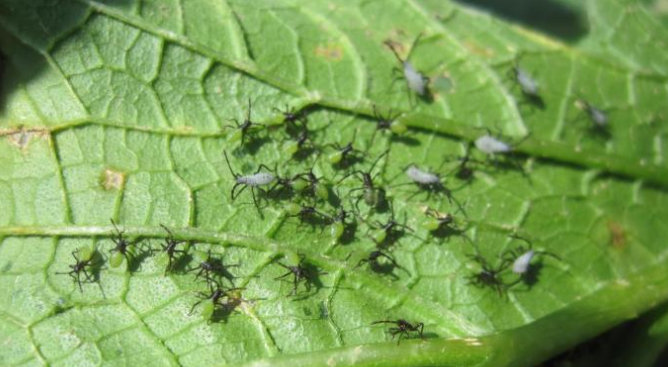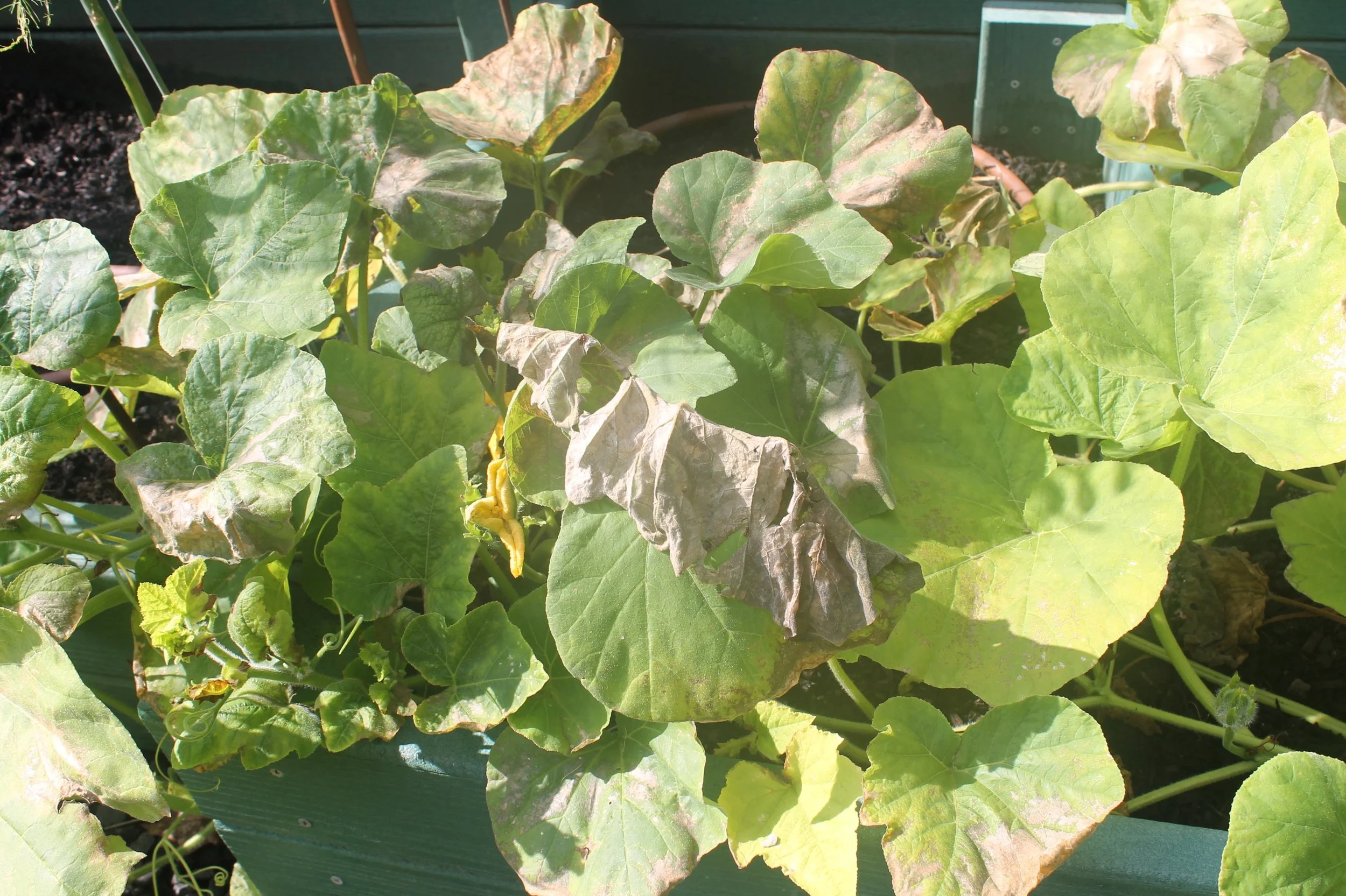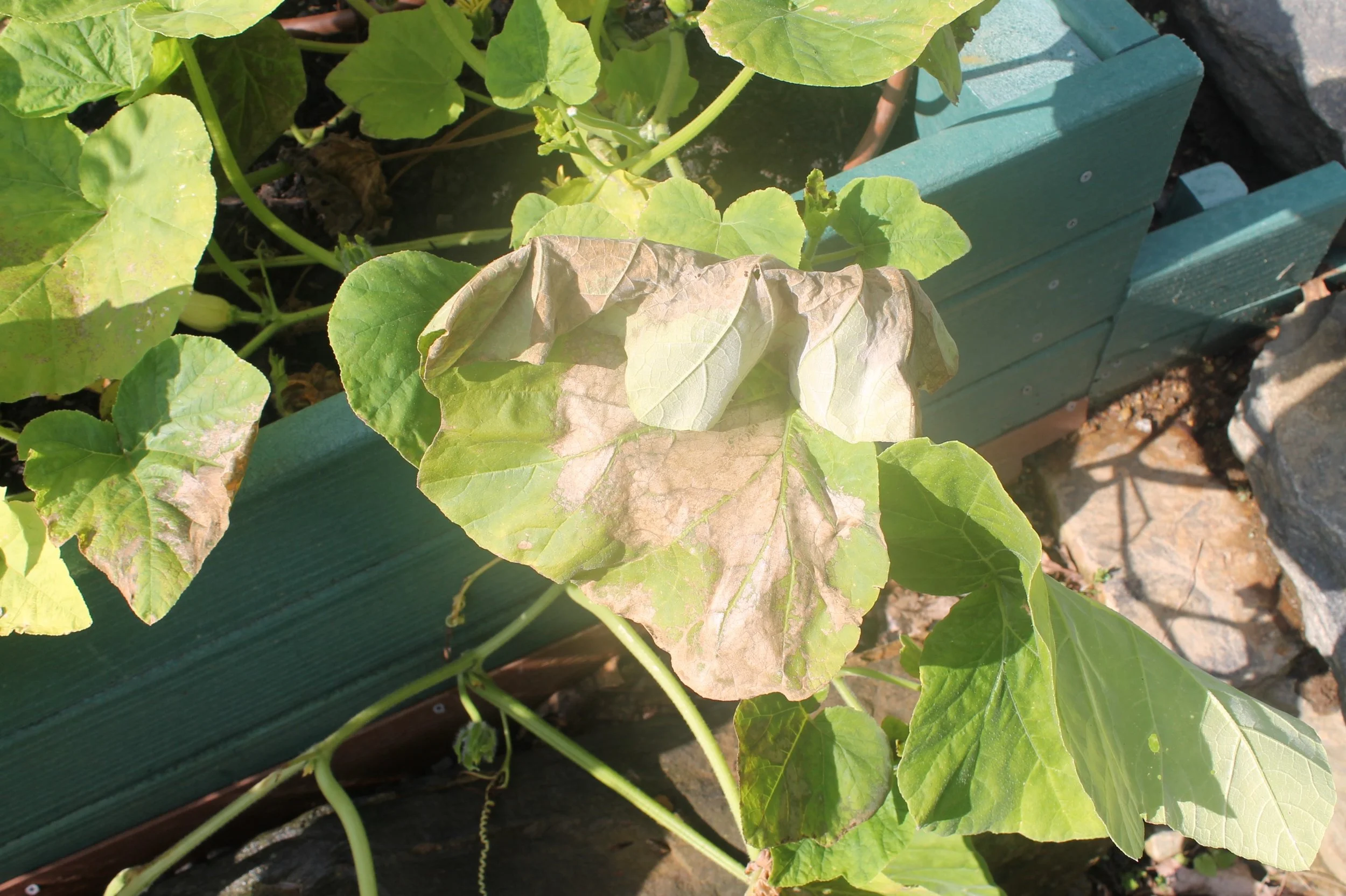In 279 BC, King Pyrrhus of Epirus defeated the Romans in the Battle of Asculum, but in the process lost so many men that, as Plutarch reports, he concluded, "If we are victorious in one more battle with the Romans, we shall be utterly ruined." Hence the term "Pyrrhic victory, where winning comes at such a cost one wonders whether it was worth it.
That's a pretty accurate description about my current situation with the squash bugs, whose appearance was first discussed here. Since then, we have literally been in hand-to-hand combat. Well, hand-to-bug combat actually. Here's what I'm up against:
This is Mrs. Bug, and yes, that's pretty much actual size: she is about 3/4" big -- hard-backed and very quick. She was very proud of herself, having just finished laying all the eggs on this leaf.
As awful as this looks, it gets worse when these eggs start to hatch about 10 days later...
According to the Farmers' Almanac, "These bugs inject a toxin into the plant and suck the sap right out of it with their sharp, sucking mouthparts." How lovely. As a result, nutrients can't get to the leaves, which then dry up and turn black, seriously stressing the plant and often killing it. They also overwinter in the soil, and though we rotate crops diligently, they must read the Insect Informer each season when it reports our garden layout, because no matter where Mr. Mulch plants the squash, the bugs show up.
Because the adults can fly, have hard shells, and can skitter away in a flash, they're notoriously hard to kill. The recommended method of dealing with these life-sucking creatures is to remove them physically. Hand-to-bug combat. Even assuming I could find and dispatch them all, that still leaves about a gazillion eggs which will hatch and mature into adult bugs in a couple of weeks, ensuring that next season there will be even more of them!
That thought was so horrifying that I must confess I turned to the nuclear option: an insect-lethal potion called malathion. Its name sounds as though it's derived from Latin and could be translated as "really bad shit." Which, indeed, it is. It's supposed to take care of just about any insect that might invade a vegetable garden, and though we try to be good organic gardeners, these are desperate times. I dumped some of the concentrate into a spray pump container, added a gallon of water, and went to work. To my surprise, the spray seemed to have an immediate effect on the bugs; I could only hope that the eggs would be similarly affected. At the end of the day, it seemed as though the enemy had been neutralized.
Note to self: read label and measure carefully next time.
24 hours later, there were no signs of the adults, and the eggs looked less glossy and more dried out. Alas, so did the leaves on the squash plants. In fact, it looked as though they all had chemical burns.
It appears that the amount I "dumped" into the gallon of water was way too much, and the potion was far too concentrated. Although I haven't seen either a bug or a hatched egg since, I seem to have inflicted numerous casualties in the process of defending the home turf. So far, the plants are still producing, but they are clearly not happy. I can only hope that new growth continues and they recover enough so that they're not -- in the words of Plutarch -- "utterly ruined."
At this point, I'm keeping fingers crossed for a happier outcome. I'm hopeful that some, if not all squash plants will return to healthier, happier days, like those pictured below.
If that doesn't come to pass, this will be a hard-learned lesson, and a Pyrrhic victory indeed.










